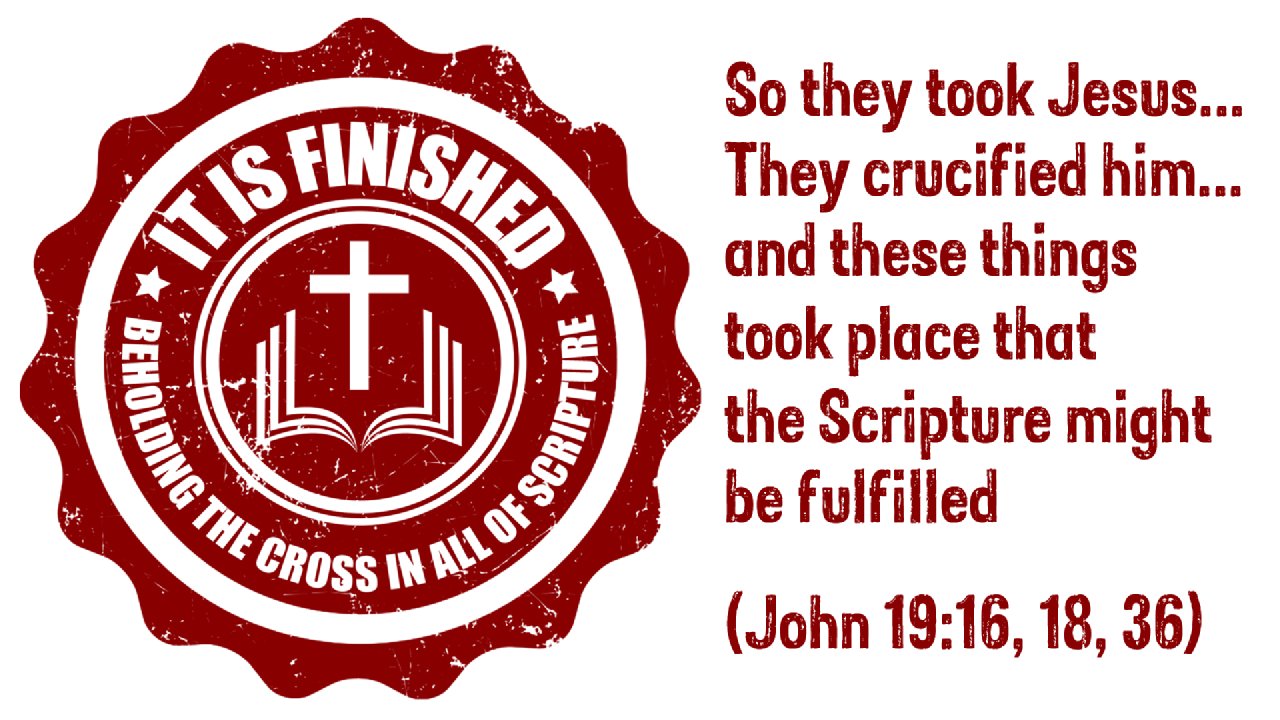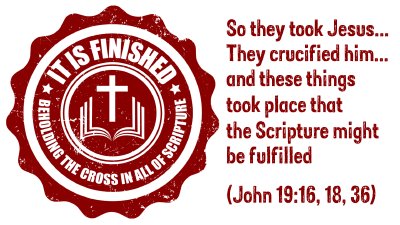Dear OBC Family,
Over the past few weeks, we have turned our eyes to the cross as we look through the Scriptures to see how they point us to Jesus and his finished work. The ram substituted for Isaac in Genesis 22, the Passover lamb of Exodus 12-13, and the Day of Atonement of Leviticus 16 all point us forward to Christ’s cross. Jesus is the Lamb of God who takes away the sin of the world, the once-and-for all sacrifice, and the substitutionary atonement for our sins.
This Sunday we will consider a variation on this theme, as we consider Christ our Shepherd. We know what it is to go astray, to be where we should not be, and be entangled or ensnared in sin. Some of us are hungry, for we have chosen poor pastures, which sicken instead of nourishing our souls with truth. You may feel lost, threatened, harassed, or helpless.
Yet we have great hope, for God is our shepherd. This Sunday we will consider different moments in redemptive history throughout the Scriptures, and turn our eyes to Christ our Good Shepherd who laid down his life for his flock. He is our Shepherd-King, and he is the Shepherd-Lamb.
I invite you to read John 10:1-30 in advance of this Sunday, and join us as we gather for worship at 8:30 and 11:00am.
Blessings in Christ,
Pastor Ben
----------------------------------------------------------------------------------------------------------------------------------------------
1. How do you see God shepherding his covenant people throughout the Scriptures?
2. What are the responsibilities of a shepherd?
3. How do the shepherds of the Old Testament point forward to Christ (positively, and negatively)?
4. What does it mean that Jesus is the Good Shepherd? How is Jesus better than the shepherds who came before him? How is Jesus the true answer to Moses’ prayer in Numbers 27:17?
5. How does Jesus shepherd the church today?
6. What promises are true for Christ’s sheep?
7. How does Scripture instruct us in how to identify threats to the flock today? (False teachers, wolves, etc). What do they look like?
8. What are the means by which God shepherds his people today, and how have you seen the Lord shepherd you?
9. What is the significance of the change in language in Revelation (from shepherd to Lamb?)
10. As a sheep in Christ’s flock, how should we respond to Christ’s shepherding?
5. The Shepherd-Lamb (John 10:1-30)
October 10, 2021 • Ben Purves • John 10:1–30, Ezekiel 34, Revelation 7:17, Numbers 27:16–17
13. The Supremacy of Christ and His New Covenant (Hebrews 9)
December 5, 2021 • David Schrock • Hebrews 9
As we come to the last message of our series on the cross, before considering the cradle and the cross of Christ (our Advent mini-series) we will return to the theme that we started with—the finished work of Christ. If Christ declared that it was finished on the cross (John 19:30). And his crucifixion completed the work described in Psalm 22 (see v. 31). Then Hebrews 9 gives us another passage where the once and for all work of Christ is extolled and explained. In fact, in describing the ways that Christ is better than all the persons, events, and institutions that preceded him in Israel, Hebrews 9 explains how the cross works—both on earth and in heaven. As you have time, read Hebrews 9 and pray that God would open our eyes to see all the ways that Christ fulfills all the types and shadows of the Old Testament. Indeed, all of the Law, the Prophets, and the Writings point to Christ, and this Sunday, Lord willing, we will see how that works once and for all. For His Glory and your joy, Pastor David ------------------------------------------------------------------------------------------------------------ Discussion & Response Questions for Hebrews 9 1. What are the key components of the Levitical system of sacrifice? (Hint: there are four) 2. What do you know about each—the tabernacle, the priesthood, the sacrifices, and the covenant? 3. Why is it necessary to know these components of the sacrificial system, if you want to know the finished work of Christ? 4. How does Christ’s cross (and resurrection and ascension) fulfill the sacrificial system? 5. In what ways does Hebrews 9 depend upon and quote the Old Testament to explain Christ’s death and resurrection? 6. How is Christ better? Why is this good news for the Jewish followers of Christ? How is this good news for us? 7. What does it mean that Christ is the mediator of a new covenant? 8. What did the blood of Christ accomplish? Remember, the blood applies in two directions in Hebrews 9. 9. How does Christ purify heaven? How do we see that in the text? 10. How does the inauguration of the new covenant and the exaltation of Christ into heaven change the world? And impact your life?
12. The Cross of Christ Demonstrates, Defines, and Diffuses the Love of God (1 John 4:7-12)
November 28, 2021 • David Schrock • 1 John 4:7–12
Where do you look when you don’t feel the love of God? This Sunday we will look to 1 John 4 to answer that question. And what we will find is that the unchanging and objective work of God also has a personal and subjective application to all those who are in Christ. Indeed, the cross not only does something for us, it does something to us. And this Sunday we will see what that is. To prepare for Sunday, take time to read 1 John. While our focus will be on 1 John 4:7–12, the whole book is aimed to give assurance to God’s people, all the while exposing unbelief. So take time to read and pray for our gathering. I look forward to seeing you Sunday, as the Lord allows, and to worshipping Christ with you. For His Glory and your joy, Pastor David --------------------------------------------------------------------------------------------------------------------------------------------- Discussion & Response Questions for 1 John 4 1. What have you learned so far this fall about the cross? 2. Why is it important to first see the cross as something Christ achieved (“It is finished”) before seeing it as something where God displays his love? 3. What does John say about love in 1 John 4? 4. In what ways is it difficult to know or embrace God’s love? 5. What does the cross teach us about God’s love? And how does it produce love in us? 6. How does the church, who is dedicated to the cross, show the love of God? 7. What else did you learn about the love of God? 8. Who needs to hear from you about the love of God?
11. Reconciliation (Colossians 1:15-2:15)
November 21, 2021 • David Schrock • Colossians 1:15—2:15
Since the start of our series on the cross, one recurring theme we have seen is the way that judgment and salvation are paired. In the Passover, God saved his firstborn and judged Egypt’s firstborns. At the Red Sea, God saved his people and destroyed Pharaoh and his army. Just the same, as I read 2 Kings 3 this week, I found this theme again. The water that God provided to save Israel is the same water that brought the Moabites to their death. In short, God’s judgment is never without salvation. And his salvation is never without judgment. From the flood of Noah to the end of time, we find salvation and judgment. And this week, we will see how Paul joins these two works of God in the cross of Christ. In Colossians 1:20, Paul says that the blood of Christ’s cross is reconciling all of creation. And in what follows (1:21–2:23) he explains how that happens – through salvation and judgment. In these two chapters Paul identifies whom the cross saves and whom the cross judges. And for us, as we keep our eyes fixed on Christ, we will see how the cross has cosmic, as well as personal implications. To prepare for Sunday, take time to read Colossians—it’s not long. On Sunday, we will start with Colossians 1:20 and then follow Paul’s twofold explanation of Christ’s cosmic reconciliation that relates to salvation and judgment. I can’t wait to see you Sunday, as the Lord allows, and to worship the risen Christ with you. For His Glory and your joy, Pastor David --------------------------------------------------------------------------------------------------------------------------------------------- Discussion & Response Questions for Colossians 1-2 1. How has the pattern of salvation and judgment been seen in the Bible? And how has that pattern helped you better understand the cross? 2. In what ways does Paul speak of the cross in Colossians? And how do the creation themes relate to the cross? 3. Look at Colossians 1:20. What does this verse not mean? (Hint: No universal salvation) And how do make sense of what it does mean? (Hint: keep reading the letter) 4. Paul uses the word “reconciliation” in Colossians 1:20 and 1:22. This is the same word, but is it used in the same way? If not, why not? How do we know? 5. According to Colossians 1–2, how does Christ reconcile the cosmos? Why does this matter? 6. What does the cross do for God’s elect (Col. 3:9)? Where do we see that in the text? (Hint: 1:21–23; 2:11–14) 7. What does the cross do for God’s enemies? Where do we see that in the text? (Hint: 2:15) 8. What does penal substitution mean? What does Christus Victor mean? How do they relate? And how do they resonate with the storyline of salvation and judgment? 9. How do we apply these two aspects of the cross? Look at 1:24–2:8 and 2:16–23. 10. What else do you see in Colossians 1–2?




